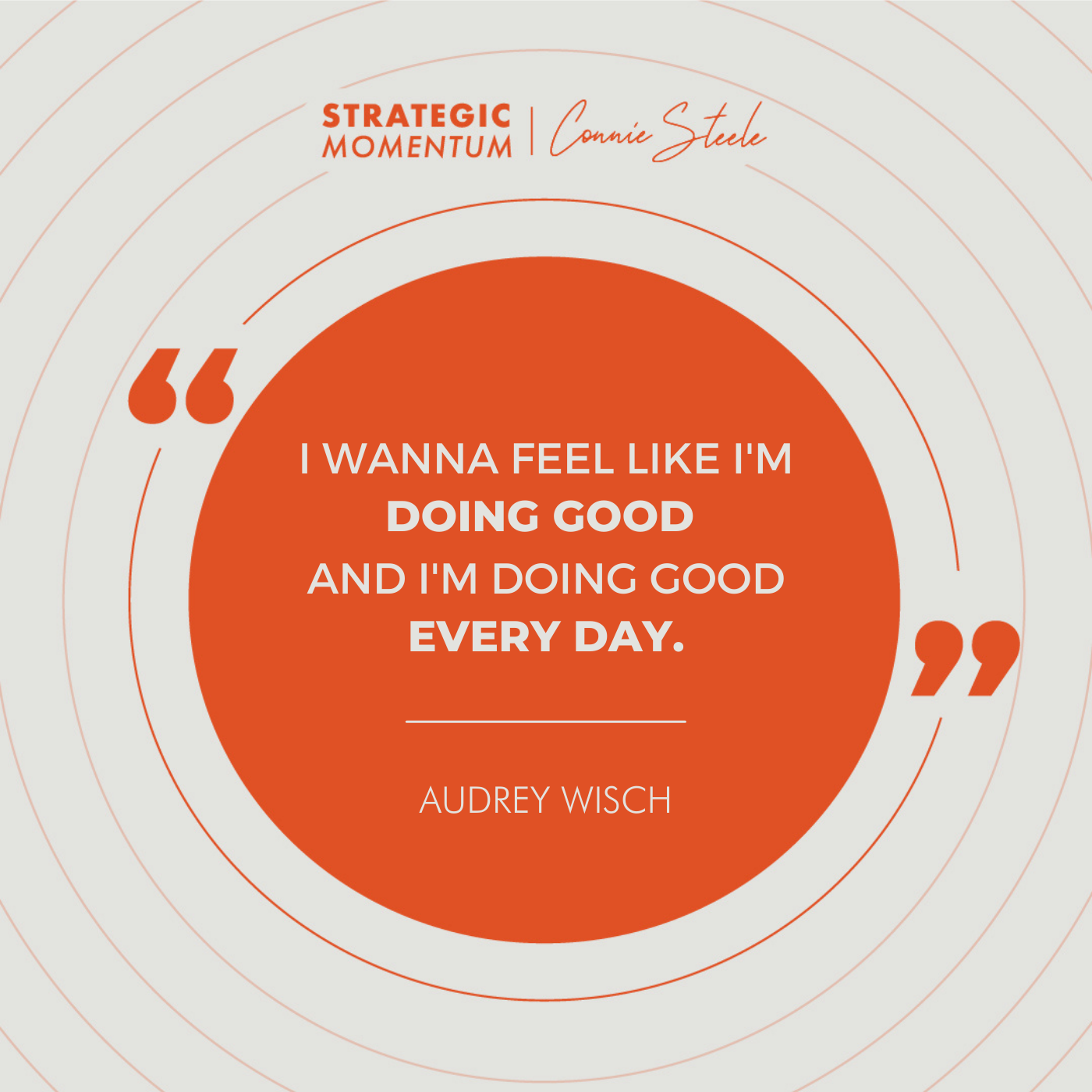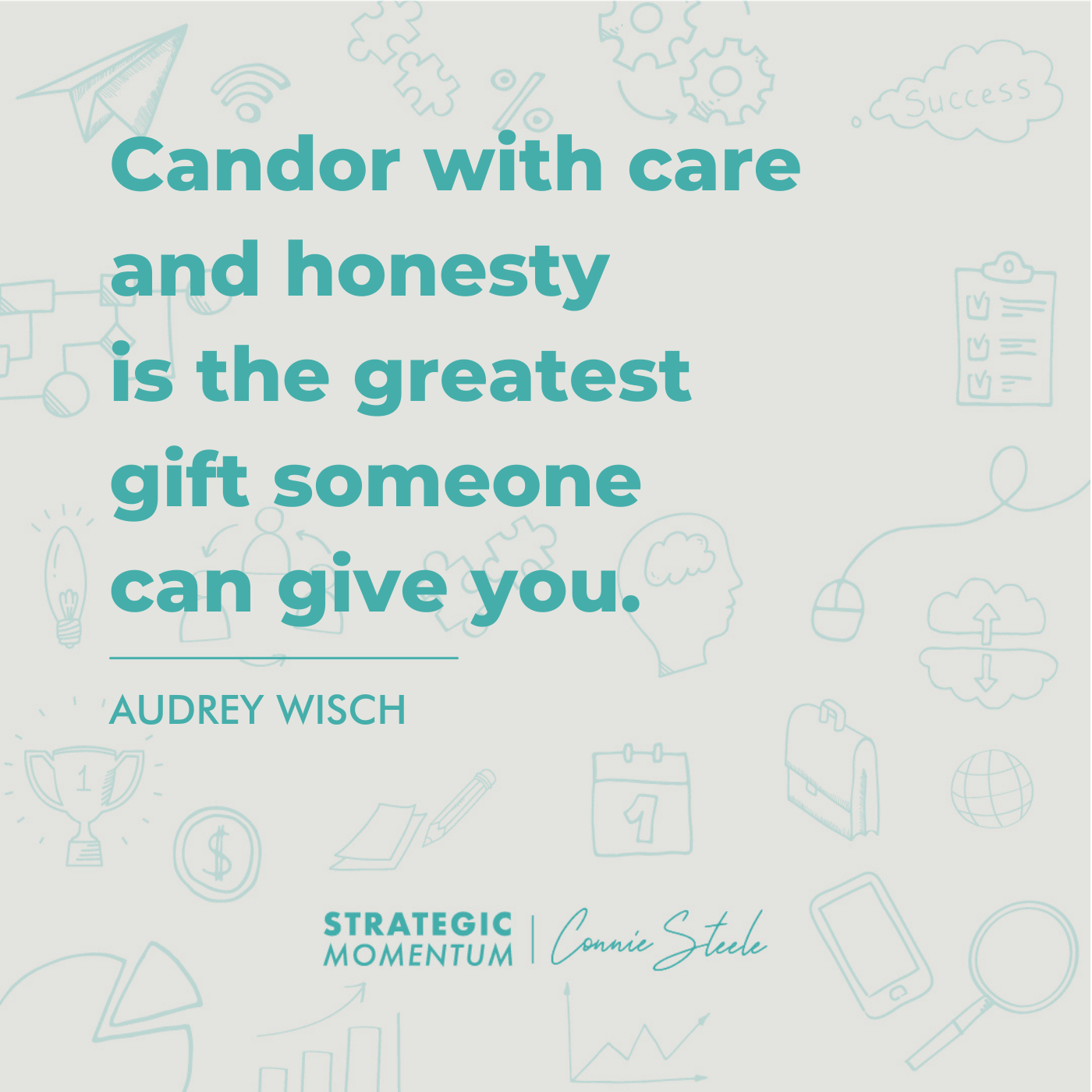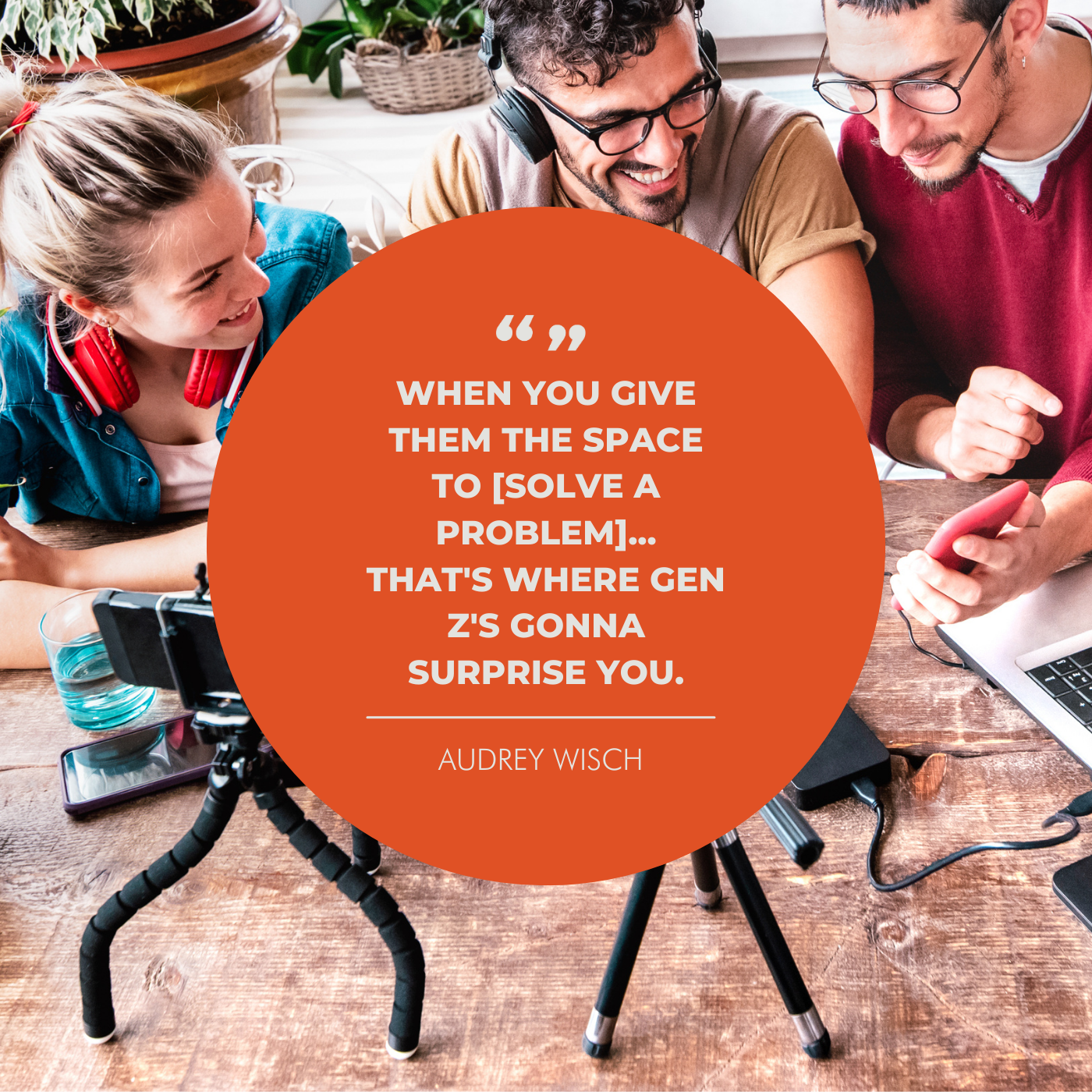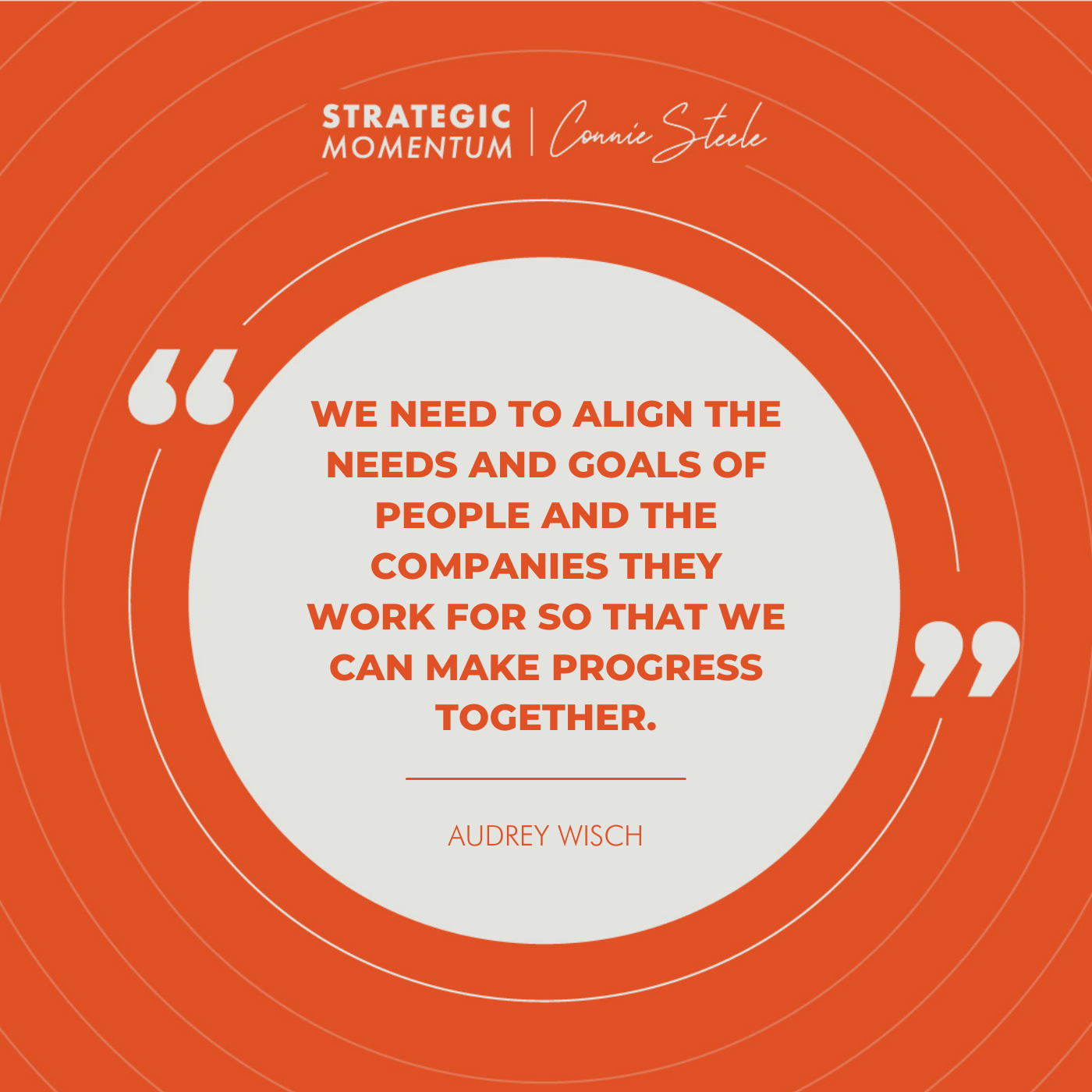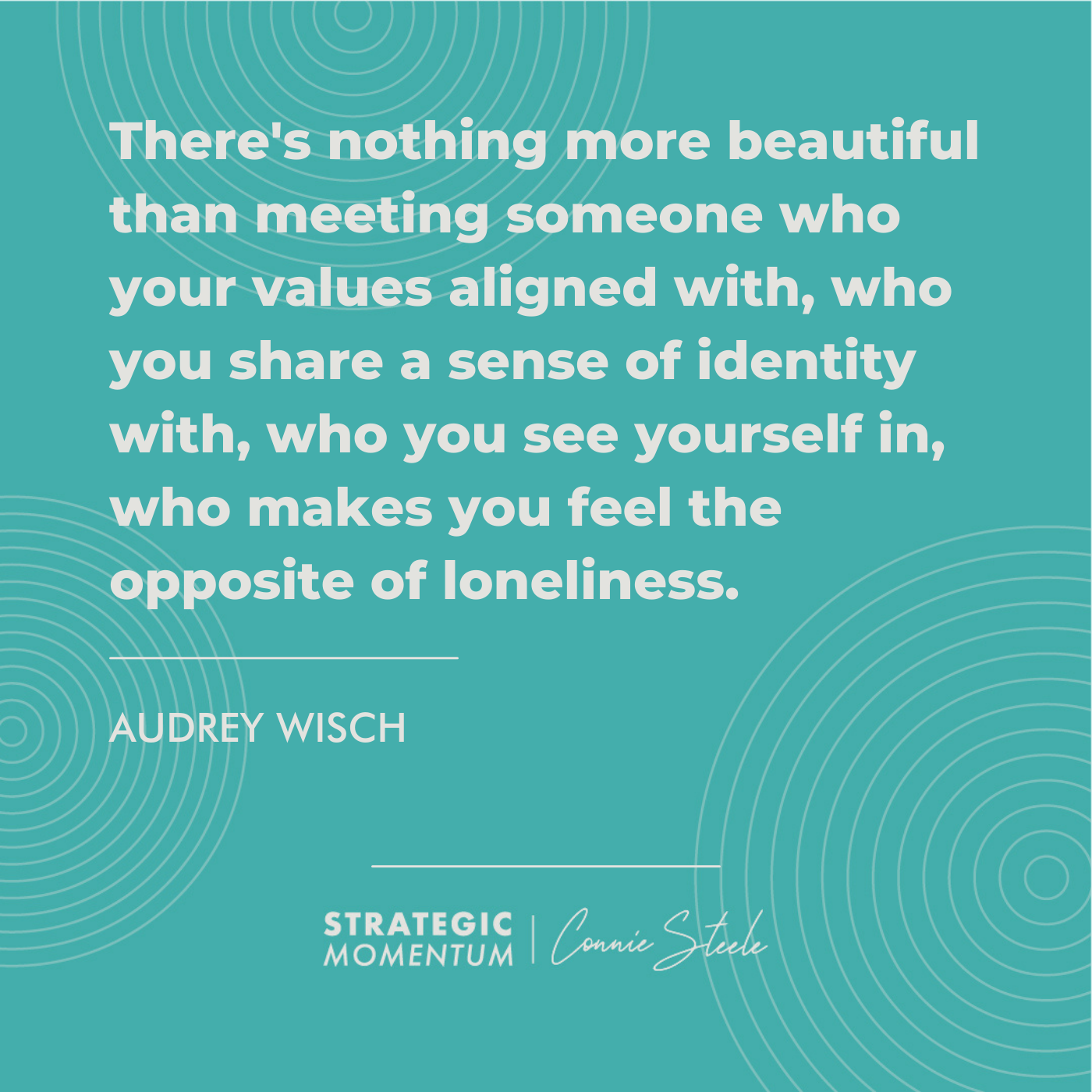Ep. 131 - Gen-Z is The Future of Work (& The Future Looks Good) - with Audrey Wisch
Find Us Wherever You Listen To Podcasts
Audrey Wisch is co-founder and CEO of Curious Cardinals, a global mentorship community that connects K-12 students with passionate college mentors. And Audrey is the kind of person who makes me excited about the future.
People spend a lot of time talking about Millennials and Gen-Z. And if we’re being honest, a lot of the time people are talking about the younger generations, they’re complaining about how they just don’t make ‘em like they used to.
And it’s true — Gen-Z is different. Some have different priorities. Some approach their work and career differently. But this doesn’t have to be a bad thing. We’re in the process of co-creating the future of work, and that process is only going to be improved by embracing these differences and including Gen-Z in that conversation.
After hearing from Audrey, I think you’ll agree that Gen-Z has a lot to add to the future of work.
Audrey’s Surprising Career Journey
When Audrey was in high school, she had a plan: she was going to be the next Ruth Bader Ginsburg, she was going to have a positive impact on the world in the biggest way she possibly could, and she walked the walk even as a teenager.
Audrey started attending Stanford in 2019 with plans to be pre-law. And at that point, she had already worked directly to empower immigrant populations and helped translate 589 asylum forms. Then, as a Freshman, she published research on the history of sexual assault in Stanford Historical Journal.
Everything was going according to plan, even a little ahead of schedule — and then COVID-19 happened.
She decided to spend some of her time tutoring students and observed how disengaged and uninspired they were with what they were learning in school. She wanted these kids to feel excited and passionate about something the same way she did, and get excited for how learning could help them get there. So she worked with kids who were starting to get interested in criminal justice reform during the Black Lives Matter protests, while she enlisted her co-founder to mentor students on the applications of math and aviation.
And it was working. Not only were the students more excited about learning, their side project grew into a full-time business. And today, just two-and-a-half years later, Curious Cardinals has raised $6.8 million in venture funding, hired 13 full-time employees, and matched over 400 college mentors from around the globe.
Embracing a More Fluid Path
This wasn’t the path that Audrey originally planned. And at first, she thought she’d go back. But she realized that tutoring these kids, and connecting other mentors with curious kids, was creating the kind of impact she wanted to have in the world — she was championing individuals and having a systemic impact.
And this was only possible through leveraging all her interests and passions, continually learning and building new skills, all while staying true to what she valued most.
Who Are Gen-Z? Myths and Misconceptions
Roberta Katz, the senior research scholar at Stanford’s Center for Advanced Study in the Behavioral Sciences, shares the following overview of Gen Z:
“In summary, a typical Gen Zer is a self-driver who deeply cares about others, strives for a diverse community, is highly collaborative and social, values flexibility, relevance, authenticity and non-hierarchical leadership, and, while dismayed about inherited issues like climate change, has a pragmatic attitude about the work that has to be done to address those issues.”
And when I asked Audrey about this definition, she wholeheartedly agreed. She also felt relieved that it was a positive perception of Gen-Z — because that isn’t really what she’s used to hearing.
There are a lot of myths and misconceptions about Gen-Z out there.
Some say they don’t have a work ethic. But if you’ve talked to a young person for even five minutes, I think you know that isn’t true. However, they don’t necessarily buy into the hierarchy of existing business and social structures, and they don’t necessarily see a reason to follow a linear path when there are other options.
Gen-Z also doesn’t necessarily want to do something the same way it’s always been done, which can be interpreted as bad work ethic or being difficult. But if you can see a possible new solution that isn’t being tried, it’s frustrating to be told to do it the way it’s always been done. This is a generation that has always had access to information and tools to try things out, and a lot of them want that level of individual empowerment to work and solve problems in the ways they prefer.
However, Audrey does acknowledge that Gen-Z are quick to point out problems, but they don’t always come to the table with solutions. This gets them labeled as naive or entitled, but I think it’s representative of the fact that so many in this generation care so much, while some of the problems they’re facing (e.g. climate change, gun violence in schools) are massive and it’s easy to just feel frustrated when there’s collective apathy in making the social progress that will improve their lives long-term. So I think the older generations could practice a little compassion here, while Audrey thinks Gen-Z can do better at bringing solutions to the table instead of becoming an echo chamber of complaints.
Bridging The Gap With Younger Workers: Being Human-Centered
I think any leader in any organization should be paying close attention to what Audrey has to say about what Gen-Z wants out of the workplace and how they approach their careers.
If we want to bridge the gap with younger workers — if we want to attract them to our organizations and get the most out of them and empower them to, in turn, get the most of us — how we manage people is going to have to change.
I think Audrey reflects a sentiment shared by a lot of young people: they want to do good in the world and the process they take to get there matters. The opportunity to make money isn’t enough for many who have recently entered the workforce, and I think that’s only going to get more prevalent. We can already see that sentiment growing among Gen-Z in the State of Work & Career Success.
So being able to understand how an individual wants to make an impact, and communicate how a role within your organization will allow them to do so, is going to be the baseline. Which means your organization needs to be clear about the values they stand for and that people want to align with. For example, Audrey doesn’t just talk about valuing diversity — Curious Cardinals is structured in such a way that it nurtures and attracts diversity of thought from both mentors and mentees.
Understand that Gen-Z isn’t necessarily going to default to trust as well. So practice radical transparency. If you lead with honesty, if you deliver candor with care, it will garner trust, buy-in, and understanding. This will help clarify the alignment.
Finally, to leverage the potential of GenZ, empowering agency is key. If you set clear expectations and then you let someone exercise their creativity, you’ll get new solutions to old problems. This means our organizations will likely need to be structured differently, but everyone is trying to figure out what works best. However, I think those that make this transformation are the ones who will thrive in the future of work.
Definition of success
Leave the world in a better place than I found it to make the greatest impact I can.
Creating human connection in a time of hyper connectedness.
Best career advice
“It's not brutal honesty, it’s candor with care.”
Key Takeaways:
Start with Why in the workplace. How does every task, small or big, contribute to a greater objective? What is the north star that every person on the team is following? If you can get everyone aligned on this, and understand how this goal aligns with their personal goals, you’re going to get so much out of your people.
Radical transparency. Lead with honesty and know that will garner trust, buy-in, and better understanding. Learn what workers want to get out of the experience short and long term, then align on incentives so everyone can be successful together.
Be explicit about expectations. Don’t assume that a new worker will intuitively know or fully understand just because you understand, with your years of context and experience.
Empower agency. Let people run with their own creativity and so they can contribute in ways that you wouldn’t have thought about. Engage in that dialogue to learn how you can create the space for creative workers to run with their ideas.
This generation doesn’t always want to adhere to the status quo. That can be a good or bad thing, and this is why both setting expectations and empowering agency is important.
If you want a thriving inter-generational workforce, you have to co-create the right environment together. We will all benefit in the workforce if we can agree to talk out a mutual value exchange that leverages everyone’s knowledge, interests, and skills, and this is true within organizations and on a macro scale.
Resources
Learn more at https://www.curiouscardinals.com/
LinkedIn: https://www.linkedin.com/in/audrey-micay-wisch-39a95a1b2/
Twitter: https://twitter.com/AudreyWisch








